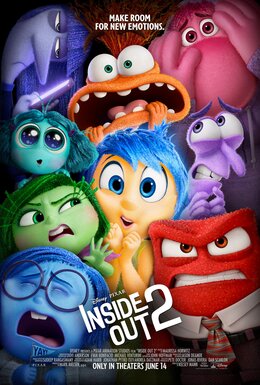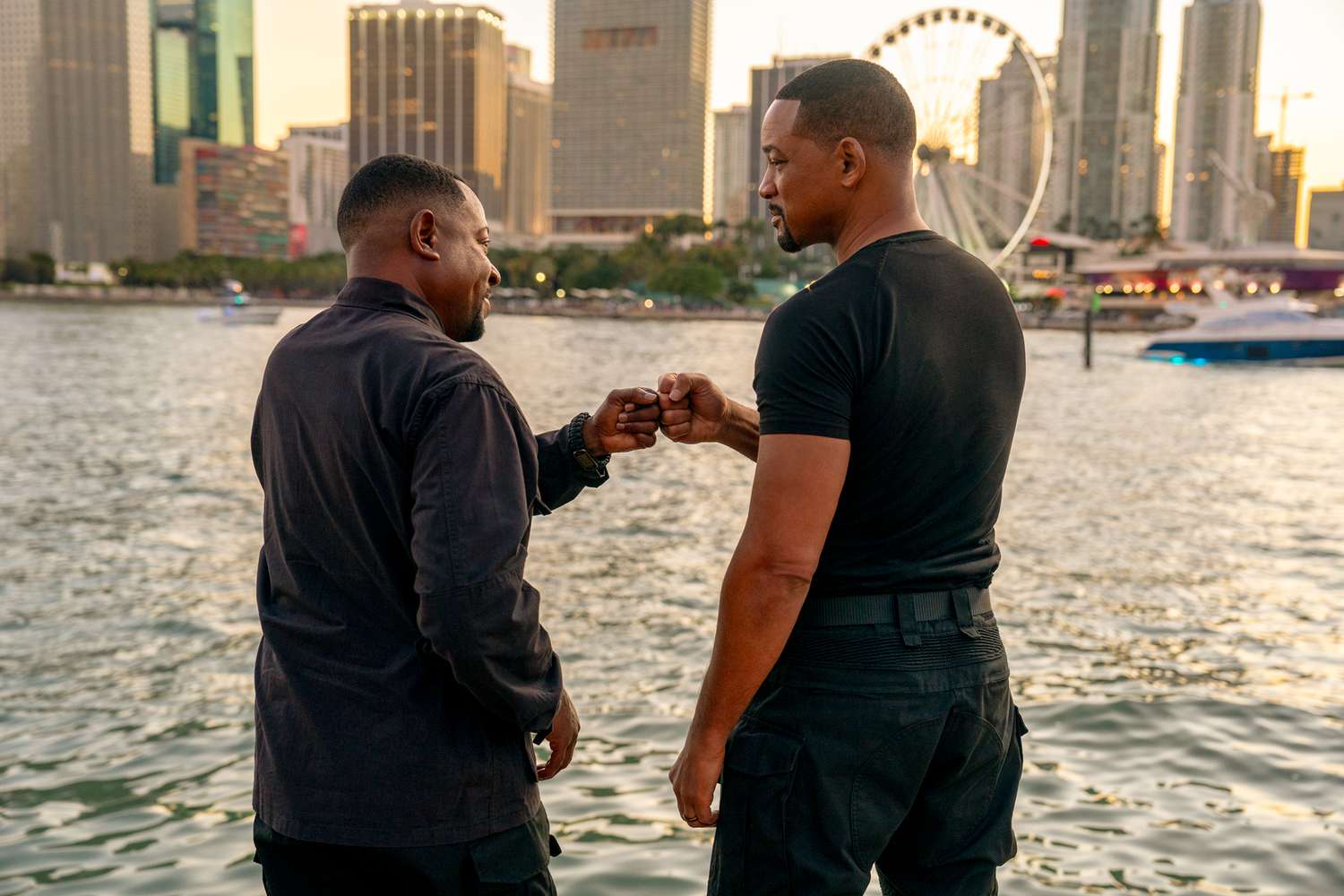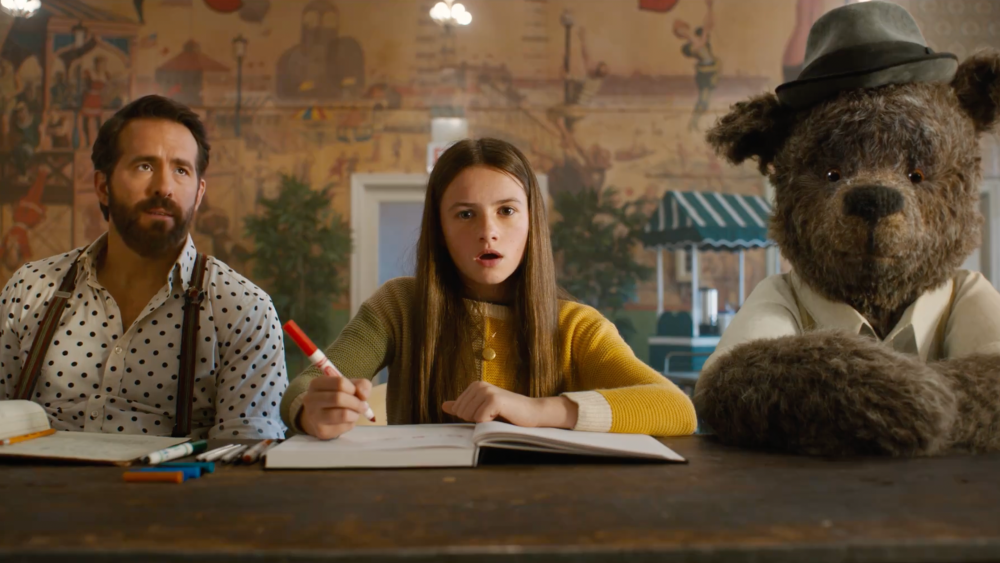Inside Out 2
Posted on June 12, 2024 at 2:43 pm
A-| Lowest Recommended Age: | 4th - 6th Grade |
| MPAA Rating: | Rated PG for thematic elements |
| Profanity: | Mild schoolyard language |
| Violence/ Scariness: | Some peril and chaos, plus teen angst |
| Diversity Issues: | None |
| Date Released to Theaters: | June 14, 2024 |

Okay, Pixar, you got me. I cried and laughed within the first ten minutes of “Inside Out 2,” an adorable, heartwarming and fully up-to-the-original sequel to the beloved story of Riley and her middle school emotions. And then I cried two more times and laughed many times. Okay, maybe there might have been a little PTSD about being an adolescent and living with a few, but this movie is so brimming with empathy and understanding, I think there was some healing, too.
In the midst of the colorful, endearing characters and witty screenplay of the first film, there was the kind of insight it could take years of therapy to discover. The characters were the emotions Riley feels: Joy (Amy Poehler), Anger (Lewis Black), Sadness (Phyllis Smith), Fear (Tony Hale replacing Bill Hader), and Disgust (Liza Lapira replacing Mindy Kaling). What they learn, so we do, too, is that what may feel like disturbing or negative emotions are necessary to keep us safe and help us understand the world around us.
As the movie begins, Riley is feeling like she has it all together. She’s gotten a lot taller. She has braces and feels confident about herself and her friendships, getting really good at ice hockey, invited to a three day elite hockey camp by the coach at the high school she will be attending. She’s a teenager now, blowing the candles on her 13th birthday cake. If she doesn’t know what’s coming yet, her face does. There’s a pimple coming on her chin. And for the first time, she wakes up feeling insecure and under too much pressure.
But then the console inside her head suddenly has a big, red, button labeled “Puberty.” And a group of very unsettling new emotions arrive: Anxiety (Maya Hawke), Envy (Ado Edibiri), Embarrassment (Paul Walter Hauser), and Ennui (Adèle Exarchopoulos). I absolutely love the idea that this movie will inspire a bunch of 8-year-old to tell their parents they are experiencing an emotion usually associated with characters in novels by Sartre or Sagan.
Joy is very distressed by the new emotions, especially Anxiety, who seems to think she should be in charge. She explains that while Fear makes Riley afraid of what she can see, Anxiety makes her afraid of what might happen, and indeed, later in the film, we see an entire bullpen sitting at desks like those of the old-school Disney animators, imagining everything that might go wrong.
As they did before, Pixar has personified and made literal an array of internal and abstract concepts with wit, charm, and telling detail. Erik Erickson and Karl Jung would be impressed. The stream of consciousness is an actual stream. That hallmark of this stage of development, sarcasm (sorry, parents, try to think of it as an emblem of developing appreciation of layers of meaning), is an actual chasm. Nostalgia is a patient, elderly woman (June Squibb) who has to be told to go back to her room until she is needed, after “a couple of graduations and a best friend’s wedding.” Construction workers arrive for “demo day” to take out the old console, a moment that rivals the dissolving of Bing Bong in the first film. Memory, buried secrets, beliefs, sense of self, are all brilliantly imagined. The emotion characters zoom in on Riley’s friends’ faces to decipher their expressions, the kinds of details a younger person might overlook. We also get to see a hilarious “Blue’s Clues” or “Dora the Explorer”-like cartoon character from Riley’s early childhood, named Bloofy (Ron Funches), who asks the audience to help him solve problems.
And as in the first, the voice talent is superb. Poehler is just right for Joy’s natural energy and ebullient enthusiasm, sometimes masking her own anxious feelings about keeping everyone confident and happy. Hawke’s slightly husky voice is perfect for Anxiety, who gives us a glimpse of her own confidence and even joy in giving Riley the tools she needs to navigate the challenges of adolescence. We can see the anxiousness in Joy and the joy in Anxiety as Riley moves toward integration of the emotions, with a very sweet moment as both the hockey players and the emotions move toward teamwork. It is a treat to hear Paula Pell as the anger inside Riley’s mom and Pixar completists might recognize the voice of “Inside Out’s” director and this film’s executive producer, Pete Docter, as Riley’s Dad’s anger. The reference to his home state of Minnesota is another nod.
Screenwriters Dave Holstein and Meg LeFauve and director Kelsey Mann were advised by a teams of experts, including psychologists and the real experts, teenage girls. This film is an exciting adventure of the heart and spirit and I look forward to happily crying through it again.
NOTE: Stay ALL the way to the end of the credits for an extra scene
Parents should know that this film has a lot of teenage angst and some mild schoolyard language. They should also know it will have a powerful impact on the parents as they remember their own adolescence and consider the emotions they fell over their children growing up.
Family discussion: How do each of the emotions help Riley? Ask members of the family how they learned to solve problems.
If you like this, try: “Inside Out” and “Everybody Rides the Carousel”







